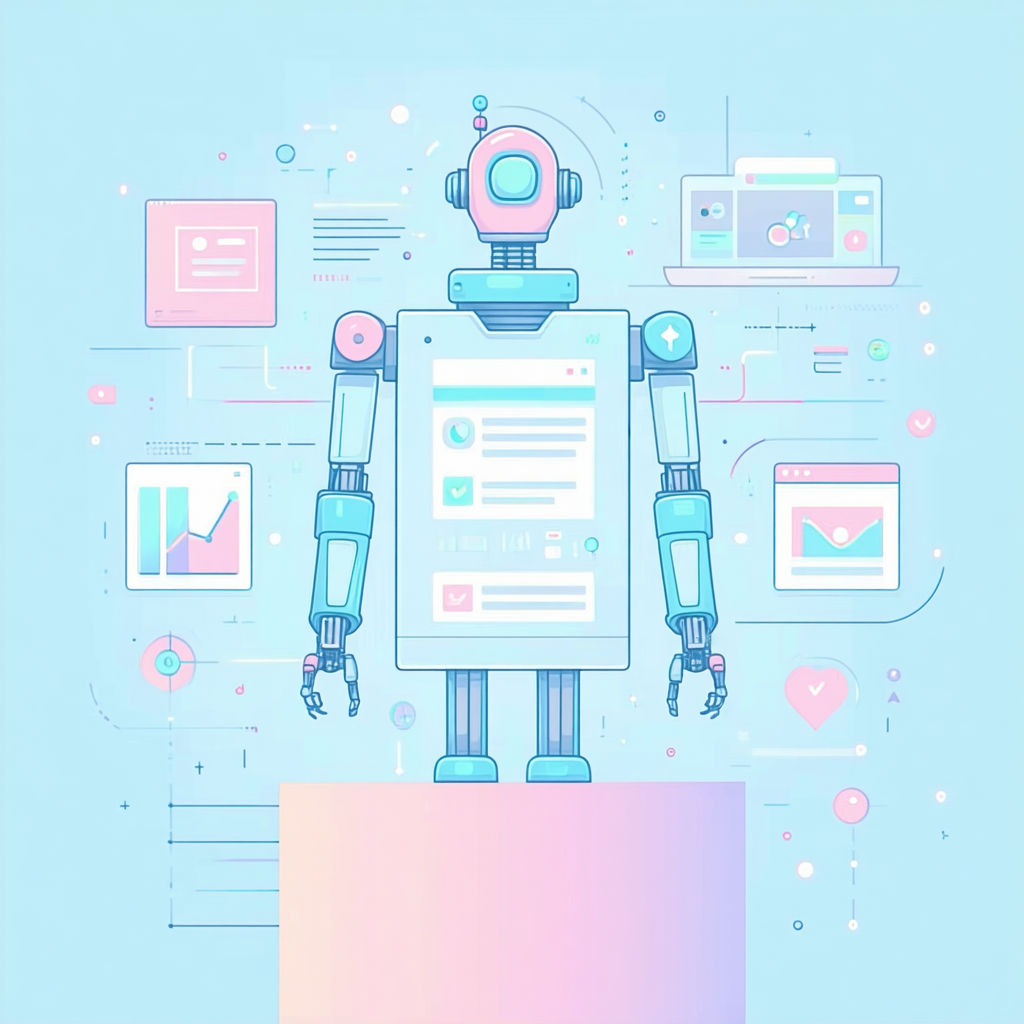Top SaaS Marketing Strategies That Will Dominate 2025

What’s the one SaaS marketing strategy in 2025 that could single-handedly transform your business growth overnight?
Table of Contents
- Introduction
- Understanding SaaS Marketing
- Key SaaS Marketing Strategies for 2025
- Leveraging AI and Automation
- Content Personalization
- Customer-Centric Campaigns
- Influencer Collaborations
- Measuring Success in SaaS Marketing
- Conclusion
- Key Takeaways
- FAQ
Introduction
The SaaS landscape is constantly evolving, with new technologies and trends emerging every year. As we enter 2025, it's crucial for marketers to stay ahead of the curve and adapt their strategies to meet the changing needs of their customers. In this article, we'll explore the top SaaS marketing strategies that will dominate 2025, helping you stay competitive and achieve your business goals.
Understanding SaaS Marketing
SaaS marketing focuses on promoting software solutions delivered through the cloud. Unlike traditional product marketing, it emphasizes subscription models and continual customer engagement. Effective strategies must address unique challenges like high competition and rapid technological advancements. Marketers prioritize showcasing value through demonstrations and testimonials, nurturing leads throughout the customer lifecycle. Successful campaigns often integrate inbound marketing, emphasizing quality content that educates and informs potential users. Additionally, robust analytics help track customer interactions and optimize conversion paths. Ultimately, SaaS marketing revolves around building trust and credibility, ensuring sustained relationships with both new and existing customers.
Key SaaS Marketing Strategies for 2025
SaaS marketing is a dynamic field, and staying ahead of the curve requires a deep understanding of the latest trends and technologies. In 2025, several strategies will dominate the SaaS marketing landscape, offering new opportunities for businesses to grow and expand their customer base.
Leveraging AI and Automation
AI and automation have already shown promising results in SaaS marketing by streamlining processes, personalizing content, and enhancing customer service. In 2025, we can expect to see even more advanced applications of AI, such as predictive analytics to forecast customer churn and identify upsell opportunities.
Content Personalization
Gone are the days of one-size-fits-all content. In 2025, SaaS businesses will focus on creating highly personalized content that speaks directly to the needs and pain points of individual customers. This level of personalization not only increases engagement but also fosters a deeper connection with potential clients.
Customer-Centric Campaigns
Customer-centricity has long been a buzzword in marketing, but in 2025, it will be more important than ever. SaaS businesses that put the customer at the heart of their marketing campaigns, focusing on their needs, desires, and feedback, will be the ones that succeed in a crowded market.
Influencer Collaborations
Influencer marketing has been growing in popularity over the past few years, and 2025 will be no exception. SaaS businesses will collaborate with influencers in their niche to reach wider audiences, build credibility, and generate leads.
Leveraging AI and Automation
The integration of Artificial Intelligence (AI) and automation in SaaS marketing is becoming increasingly crucial. By leveraging AI and automation, businesses can streamline their marketing processes, reduce manual labor, and enhance customer experiences.
Streamlining Marketing Processes
AI-powered tools can automate repetitive tasks, such as data analysis, lead scoring, and email marketing, allowing marketers to focus on high-value tasks that require creativity and strategy.
Enhancing Customer Experiences
Automation enables businesses to personalize customer interactions, provide 24/7 support, and offer tailored recommendations, leading to increased customer satisfaction and loyalty.

Content Personalization
Content personalization is reshaping SaaS marketing, creating tailored experiences that resonate with individual users. By analyzing user behavior, preferences, and interaction history, businesses can craft messages, offers, and content that feel uniquely relevant.
Data-Driven Personalization
Harnessing data is essential for effective personalization. Tools like CRM platforms and analytics software allow marketers to segment audiences and deliver targeted campaigns. For instance, personalized email sequences or dynamic website content can significantly enhance user engagement.
Benefits of Personalization
Personalized content improves customer satisfaction and boosts retention rates. When users feel understood, they are more likely to trust and stay loyal to a brand. This approach not only builds stronger relationships but also drives measurable growth.
Customer-Centric Campaigns
Customer-centric campaigns are about understanding the needs and wants of your customers and building your strategy around them. It's about creating a memorable experience that makes your customers feel valued and understood. In 2025, this strategy will be more crucial than ever as customers continue to expect personalization and unique interactions with brands.
Here's a video that further explains the concept of customer centricity:
Influencer Collaborations
Influencer collaborations are reshaping SaaS marketing by fostering trust and expanding reach. Partnering with industry experts or niche influencers helps position your brand as credible and relatable. These collaborations work best when influencers align with your target audience's interests and values.
Building Strategic Partnerships
Focus on influencers who genuinely use or advocate for your product. Authentic endorsements resonate more effectively than generic promotions. Co-creating content, such as webinars or case studies, can amplify your brand's authority.
Watch this video for insights:
Measuring Success in SaaS Marketing
Measuring the success of SaaS marketing strategies is crucial for making data-driven decisions and optimizing marketing efforts. Key performance indicators (KPIs) such as customer acquisition cost (CAC), customer lifetime value (CLV), and churn rate provide valuable insights into the effectiveness of marketing campaigns.
Key Metrics to Track
MetricDescriptionCustomer Acquisition Cost (CAC)The cost of acquiring a new customer, including marketing and sales expenses.Customer Lifetime Value (CLV)The total value of a customer over their lifetime, including revenue and retention.Churn RateThe rate at which customers cancel or fail to renew their subscriptions.
To gain a deeper understanding of the key drivers for success in SaaS businesses, watch the video below:
Conclusion
SaaS marketing in 2025 is poised for a transformative shift, driven by innovation and customer focus. Businesses that prioritize AI-driven solutions, personalized content, and authentic engagement will lead the charge. The strategies outlined here emphasize the importance of staying adaptable and forward-thinking in a competitive landscape.
The Road Ahead
Marketers must align their efforts with evolving consumer expectations and technological advancements. Building trust through meaningful campaigns and leveraging data insights will not only attract but also retain loyal customers.
The future of SaaS marketing is not just about tools or trends—it’s about creating lasting connections. Those who embrace this mindset will shape the industry and redefine success in the years to come.
Key Takeaways
To recap, the top SaaS marketing strategies for 2025 are all about leveraging AI and automation, personalizing content, putting customers first, and collaborating with influencers. By incorporating these strategies into your marketing plan, you'll be well on your way to driving growth and success for your SaaS business.
FAQ
What is SaaS marketing?
SaaS marketing focuses on promoting and selling software-as-a-service products. It involves strategies tailored to attract, convert, and retain subscription-based customers.
Why is content personalization important?
Content personalization enhances user engagement by delivering tailored messages. It aligns with customer preferences, improving conversion rates and building stronger relationships.
How do AI and automation impact SaaS marketing?
AI and automation streamline processes such as lead management, customer segmentation, and campaign optimization. They save time while improving efficiency and precision.